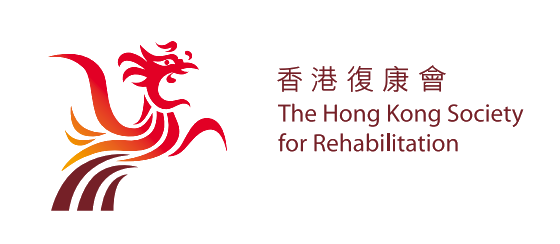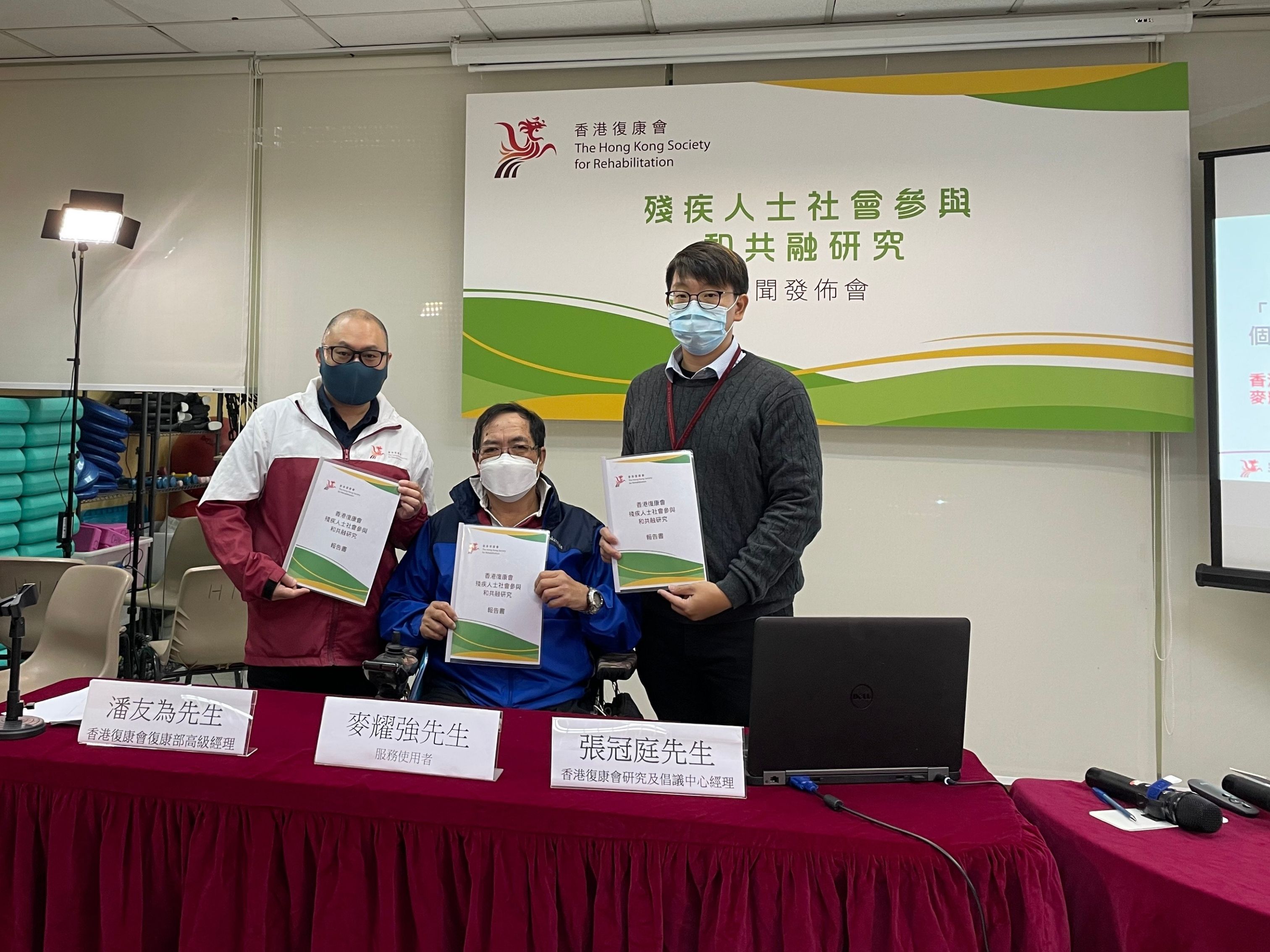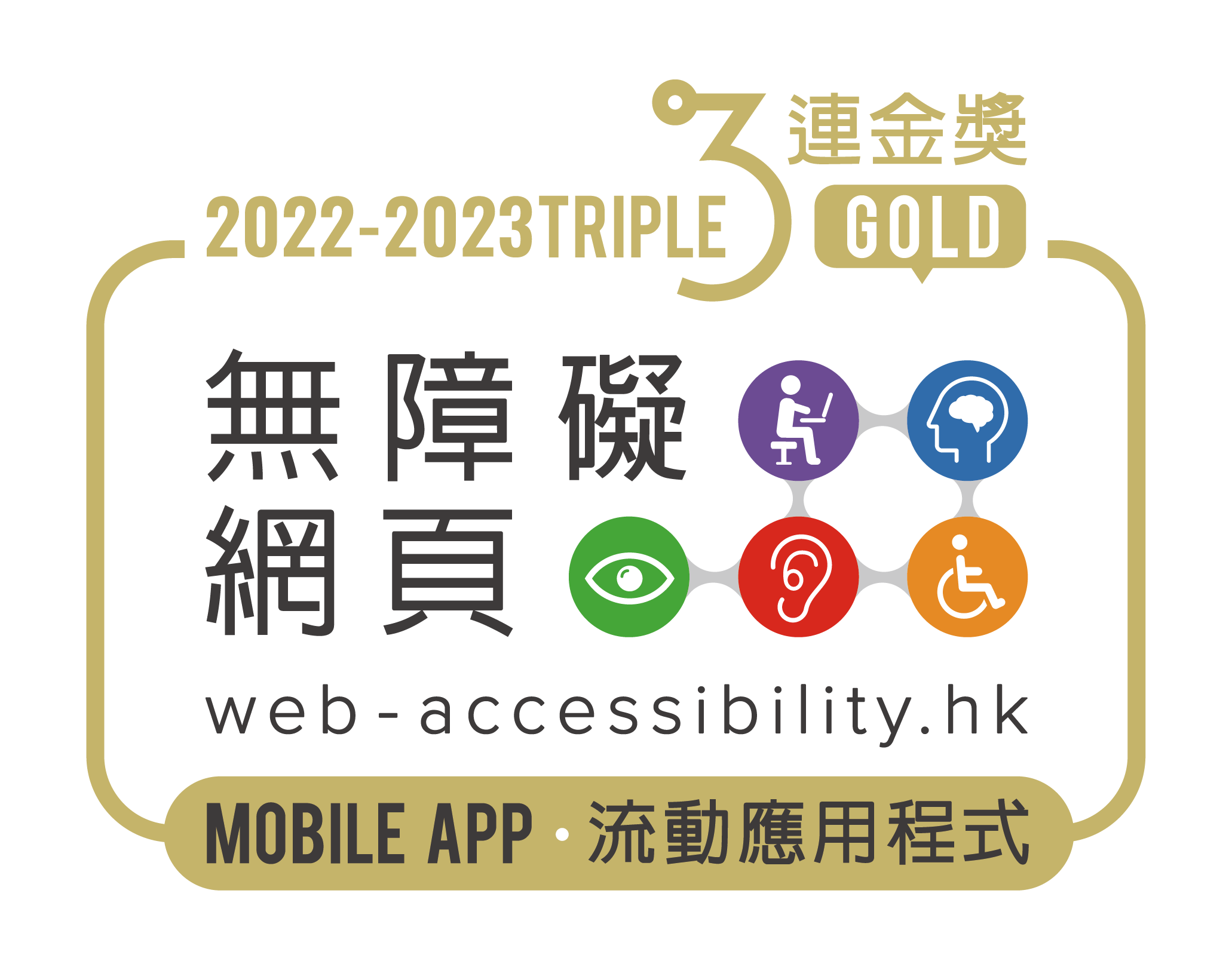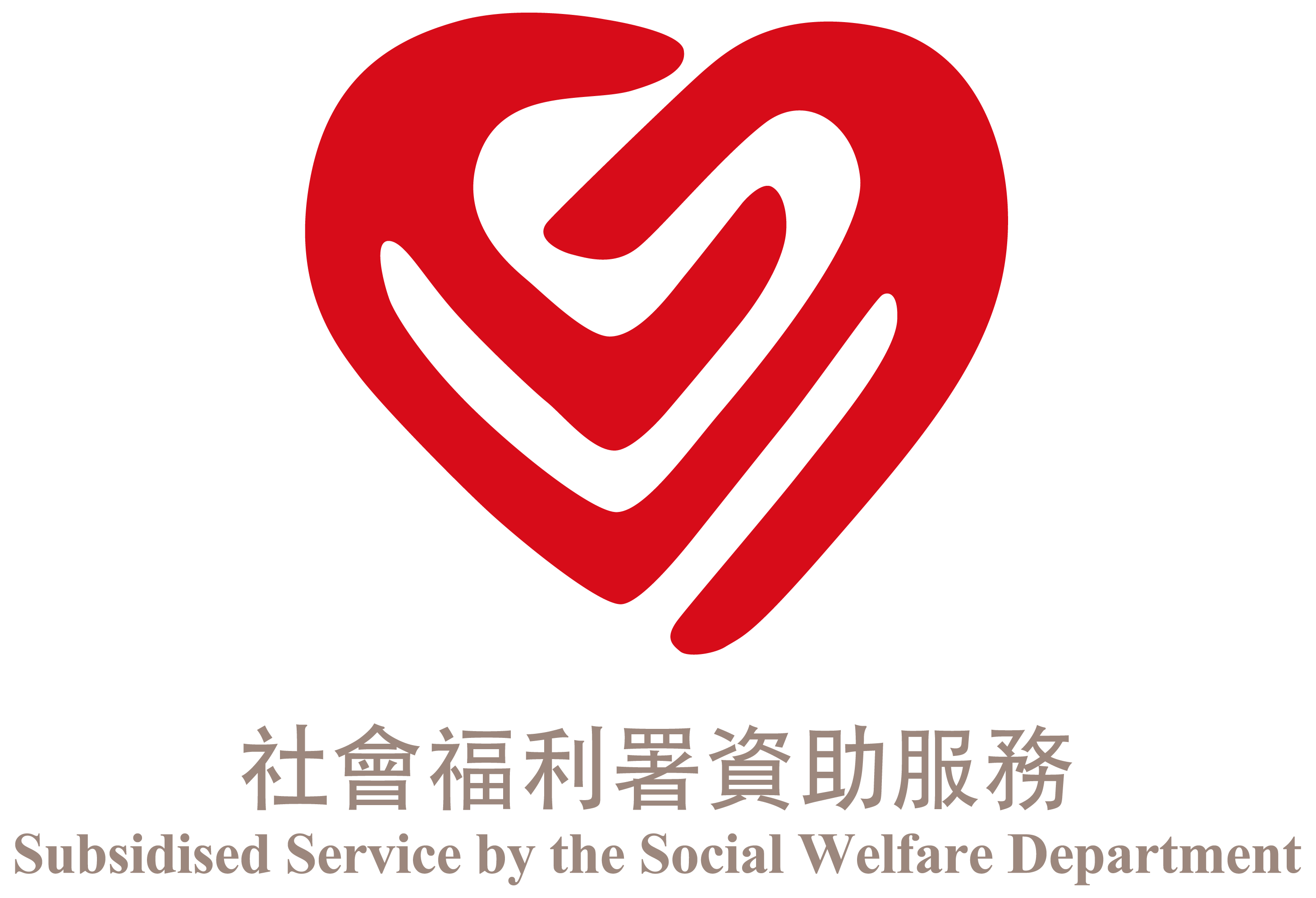Research discovered marginalisation of people with disabilities and low level of accessibility in community facilities
In recent years, the Government and other statutory bodies have been proposing improvement measures in accessibility in the hope of fostering disability inclusion. However, other factors, such as the support and acceptance of the general public towards people with disabilities are indispensable in facilitating social inclusion.
The Hong Kong Society for Rehabilitation recently conducted a research study in respect of the social participation and inclusion among people with disabilities. The study discovered that the level of convenience in the social environment for people with disabilities was medium. A majority of the respondents with disabilities or chronic illnesses was found with a rather low level of social participation, support and self-image. The summary of the results is as follows:
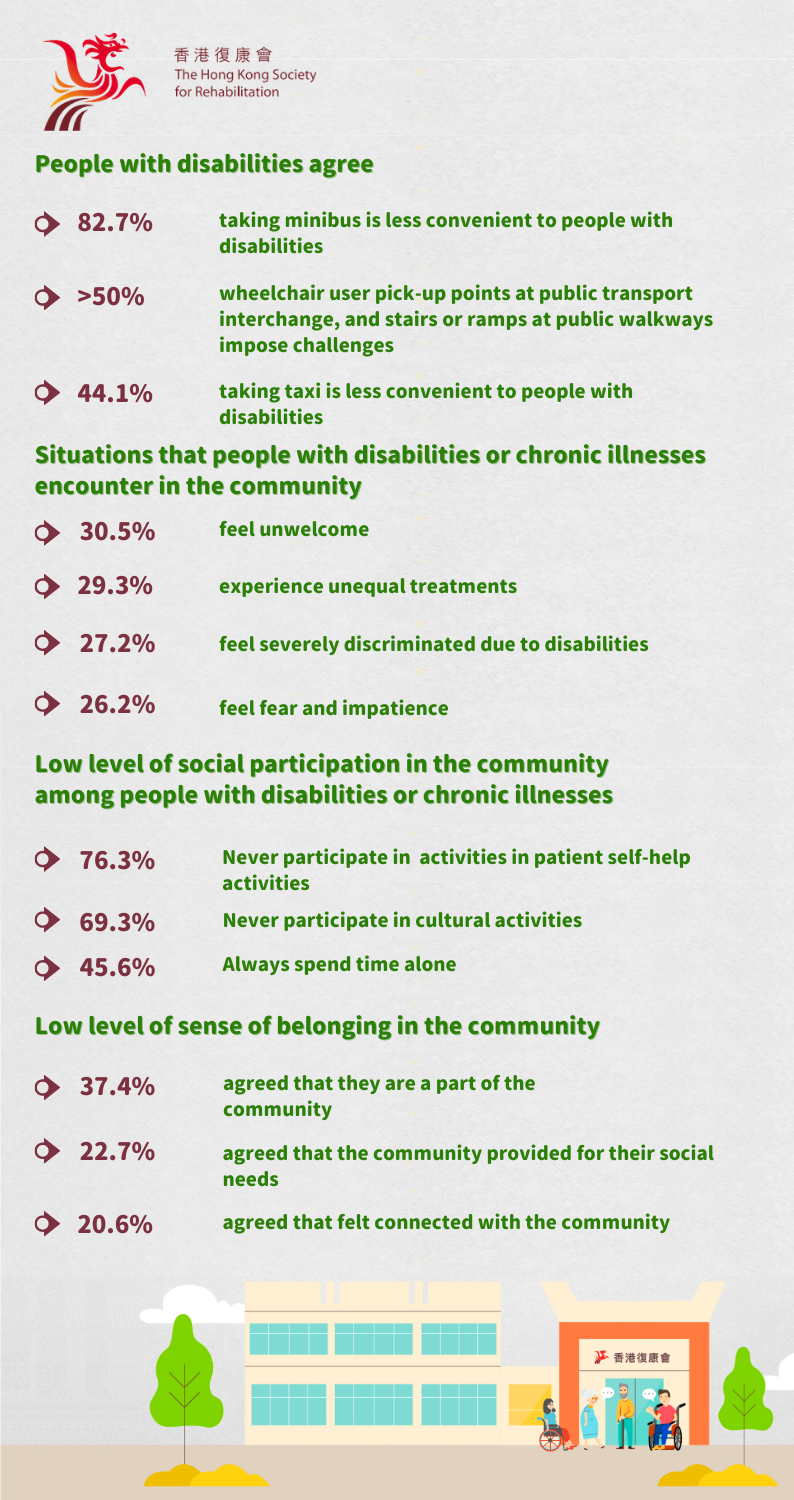
Promoting social inclusion by enhancing accessible facilities
Mr. PUN Yau-wai, Senior Manager (Rehabilitation Division) of the Hong Kong Society for Rehabilitation, mentioned that the physical condition of people with disabilities, the views and support rendered by the community, along with the level of accessibility of community facilities are the factors that affect the level of disability inclusion in the community. In recent years, following an increased public awareness for accessible facilities, and the installation of various barrier-free facilities in public spaces, including ramps, escalators and tactile guide paths, people with disabilities enhance their confidence of living in the community. However, Mr. PUN added that there was room for improvement for accessible facilities.
“The sense of community (also known as a sense of belonging in the community) of people with disabilities can be an indicator to measure the level of disability inclusion in the community. The research discovered that the level of inclusion in Hong Kong was rather low, which would require a multifaceted intervention. We suggest the Government set up a comprehensive blueprint and strategic plan to popularise accessible taxi and low-floor wheelchair accessible minibus. Apart from that, the Government can also provide accessibility training to professionals of different industries to reinforce the regulations, design and maintenance related to accessibility. We encourage the Government and other organisations promoting social inclusion to enhance public education through experiential activities so the general public can learn more about and gain first-hand experiences of the difficulties that people with disabilities encounter in their everyday life,” added Mr PUN.
The survey was conducted from August to October 2021 through phone calls and an online questionnaire with randomly selected respondents. Five hundred responses from the able-bodied aged 15 or above, along with 321 responses from people with disabilities, chronic illnesses and their carers were recorded.
